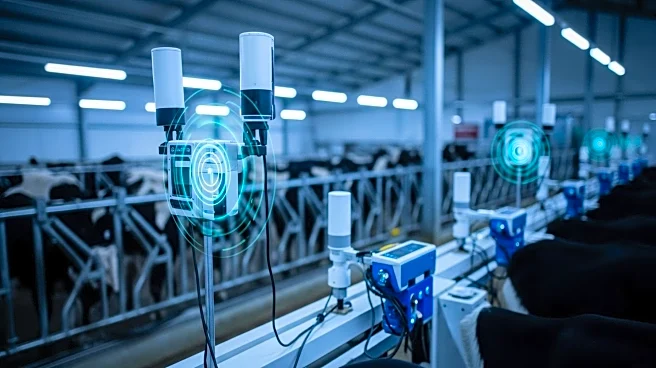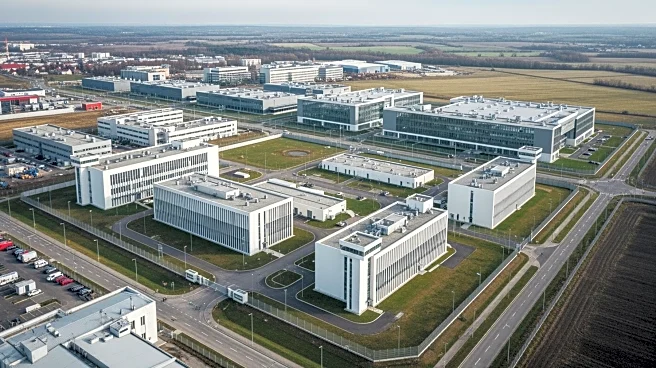What's Happening?
The precision livestock farming market is anticipated to grow significantly, reaching USD 12.12 billion by 2030, according to MarketsandMarkets. This growth is driven by the increasing adoption of technologies such as robotic milking, precision feeding, and monitoring systems aimed at optimizing yields and reducing disease risks. Companies like Lely and MSD Animal Health are leading the market with innovative solutions. The milk harvesting segment is expected to hold a substantial share due to the adoption of automated milking technologies that enhance efficiency and ensure consistent milk quality. The dairy farm segment is projected to account for a significant portion of the market, driven by the need for automation and improved herd management.
Why It's Important?
The expansion of precision livestock farming is crucial for enhancing productivity and animal welfare in the dairy industry. Automated solutions provide valuable data for tracking cow behavior, detecting early signs of illness, and improving reproductive performance, which supports higher yields. The growing global demand for milk and dairy products, coupled with a focus on sustainability, is accelerating the transition to automated systems. This trend not only boosts efficiency and profitability but also aligns with consumer expectations for sustainable and traceable supply chains. North America, with its advanced agricultural infrastructure, is expected to lead the market, setting benchmarks for innovation.
What's Next?
As the dairy industry continues to adopt digital transformation, milk harvesting technologies are set to become a leading application in precision livestock farming. The integration of real-time data analytics with milking processes will provide actionable insights for optimizing production and resource utilization. Companies in North America are likely to continue leveraging IoT-enabled devices and advanced data analytics to improve herd management and reduce operational costs. The focus on sustainability and animal welfare will drive further demand for precision livestock farming solutions, influencing global trends and regulatory frameworks.
Beyond the Headlines
The adoption of precision livestock farming technologies raises ethical considerations regarding animal welfare and the impact of automation on traditional farming practices. While these technologies offer significant benefits in terms of efficiency and productivity, they also necessitate careful management to ensure that animal welfare standards are maintained. Additionally, the shift towards automated systems may affect employment in the agricultural sector, requiring new skills and training for workers.









